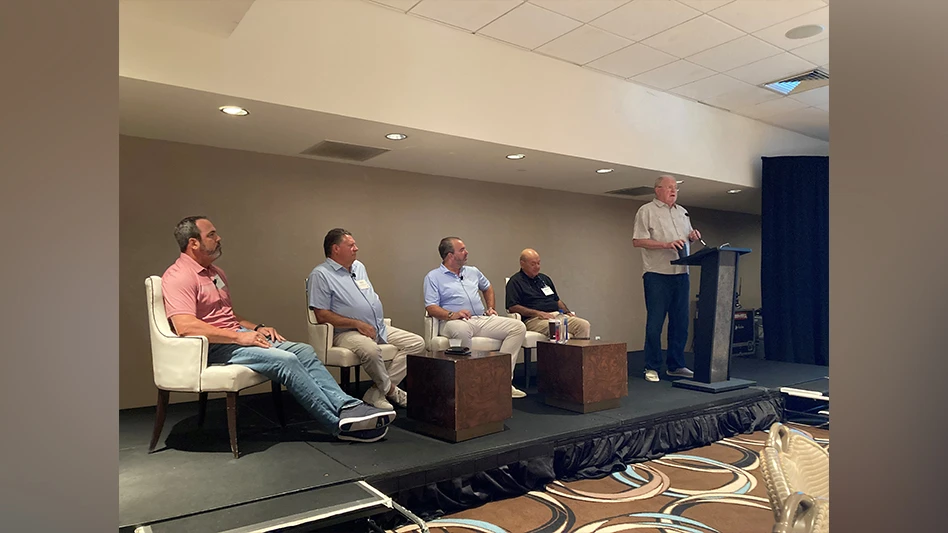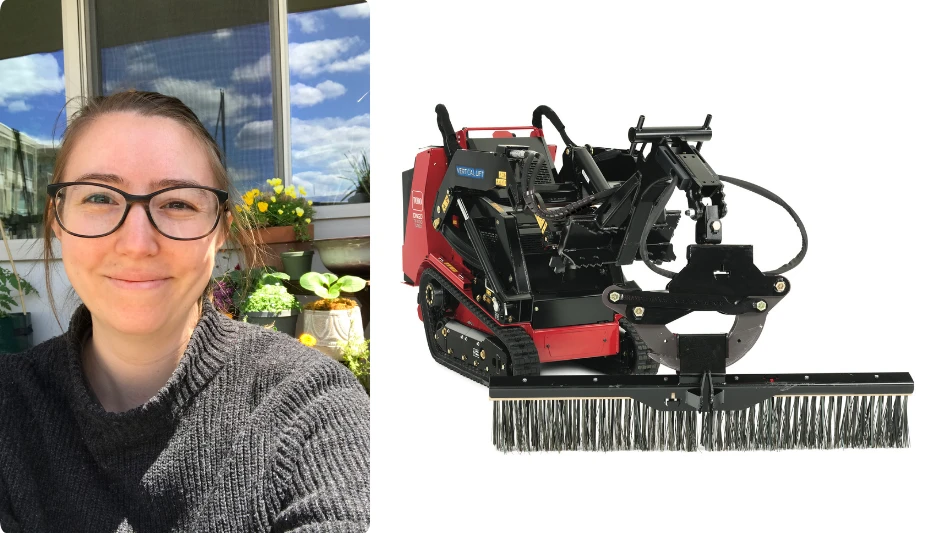
There’s plenty of important decisions to make as the owner of a landscaping company, but one of the most important decisions may be whether or not to sell your company or take on a private equity partner.
With more and more private equity interest in the green industry, it was the topic of discussion at the 2023 Bruce Wilson & Company Thought Leaders Retreat recently held in Miami.
A panel of business owners who’ve sold their companies to private equity gave advice on early steps to make and the pros and cons of selling. Panelists included Brad Cox, senior VP of operations at LMC Landscape Partners; Frank Mariani, owner & CEO of Mariani Landscape; Chris Kujawa, president of Kujawa Enterprises; and Brian Corbett, founder and managing partner of CCG Advisors, an M&A advisory firm.
Corbett, whose company has helped brokered hundreds of deals in the industry these last few decades, says interest has never been so high.
“Today there are probably between 40 and 50 active buyers in the landscape space or looking to get into the space,” Corbett says. “And that’s a crazy number. It’s a very robust market.
“There’s never been more money or interest in the green industry in the 20-plus years I’ve been in it,” he added.
From start to finish, Corbett says it typically takes no less than five to six months to complete a deal but could take up to a year. “It’s usually around six months door-to-door,” he says.
Kujawa admits that originally, his family’s business wasn’t prepared to sell — but overtime it felt like the best decision for everyone involved. After making the decision to sell the first thing they did was talk to their industry colleagues.
“Once we decided it was something to think about, the first thing we did was talk to other companies who’d been through it. Everyone gave their opinions,” he recalls.
Kujawa says the relationships with everyone involved were key in making it a success. “Get comfortable with the people shepherding you through the process,” he says. That was key.”
Once Kujawa Enterprises sold to Sperber Landscape Companies and began acquiring other companies, Kujawa says the next concern became ensuring their brand stayed strong while increasing their markets.
“We’ve got really great brand equity here in town,” Kujawa says. “So, we’ve gone out and found others with really strong brands and a good presence in the community and that’s what we’ve built over the years.”
Initially, Kujawa says the companies acquired wished to hold on to their own brands and colors, but overtime they asked to adopt Kujawa Enterprises’ branding.
“The big thing we didn’t want was turmoil,” Kujawa says of not pushing the branding on them at the beginning. “Within six to eight months, they were begging for it.”
Cox says when it comes to selling there are two camps of people — those who have to sell and those who don’t.
“Picking the right partner has to be really specific,” he adds.
And those partnerships start with a handful of professionals.
“You need a great team — a great CPA, and an attorney who’s gone through this process before,” Cox says. “Those two plus a broker are extremely important.”
Cox says when he decided to sell LMC, he chose to keep the decision to himself.
“I did as much as I could without telling anybody,” he says. “You feel like you’re on an island by yourself trying to shoulder this burden. It’s difficult.”
Cox says it was worth it though as it didn’t create any confusion or hostility in the business while the deal was being worked out.
A major motivation for selling LMC was giving some of his best employees more opportunities for advancement, Cox says.
“Since we’ve done it, six of my best people have moved up in the company,” he adds.
For Mariani, he says when he decided to sell, he did so on his terms, and he’s taken that mindset into all the company’s recent acquisitions.
“We wrote the script, and the script was pretty exciting,” Mariani says.
He adds the best piece of advice he’d give any company, regardless of if they’re looking to sell, is put in the work to make your company the best it can be.
“What’s wrong with building the best company possible every day even if you never sell,” he says.
Contrary to how Cox kept the decision to himself, Mariani says he wanted to tell everyone early on that the company would be transitioning. It’s also something he suggests all the companies Mariani Landscape partners with do.
“I brought them in really early,” Mariani recalls. “You’ll have an incredible amount of support. The earlier you’ll do that the better off you are…it’s to not create deception.





